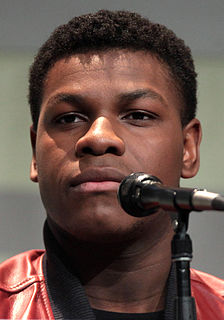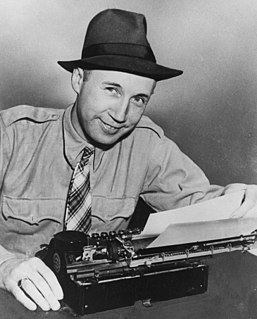A Quote by Amitava Kumar
Long ago, when I was in higher secondary school in Delhi, I read an essay by George Orwell in which he said there was a voice in his head that put into words everything he was seeing. I realised I did that, too, or maybe I started doing it in imitation.
Related Quotes
He cleared his throat, "Zoe, i think you said you love me." "I did say it. I do love you with all my heart." "I see." There was a long pause, then he said, "For how long has this been going on?" "I don't know," she said, "Sometimes i think it started a long, long time ago." "You might have mentioned it." "I didn't want to encourage it," she said, "I thought it was a bad idea.
Fifty years from now Britain will still be the country of long shadows on county grounds, warm beer, invincible green suburbs, dog lovers and pools fillers and - as George Orwell said - “old maids bicycling to Holy Communion through the morning mist” and if we get our way - Shakespeare still read even in school.
When I started graduate school we did this publishing class where we learned about submitting and read interviews with editors from different magazines. A lot of them said they got so many submissions that unless the first page stuck out or the first paragraph or even the first sentence they'll probably send it back. So part of my idea was that if I have a really good first sentence maybe they'll read on a bit further. At least half, maybe more of the stories in Knockemstiff started with the first sentence; I got it down then went from there.
When I got out of high school, I started breaking out. I tried everything from A to Z as far as seeing doctors and getting prescriptions. I even did home remedies, and I had no luck. A fan gave me Proactiv, and it cleared my skin, but there were too many steps. I lose everything, and I lost one of the products. My acne started to come back.
It wasn't until my teenage years that a book really left a mark, and that was George Orwell's 'Nineteen Eighty-Four.' It was on the syllabus at school when I was about 16, and I went on to read more of his books. It was the height of the Cold War, so a lot of the messages really resonated at the time.
Roman Polanski actually said as much to me once. He had his head in his hands, and I said, "Roman, I've got to tell you, as an actor, seeing the director with his head in his hands... Look, I really want to do what you want me to do." And he went away and he came back, having obviously thought about what I said. And he said, "When my head is in my hands, I'm closing my eyes and trying to remember what I saw in my head, before any of the stuff."






































